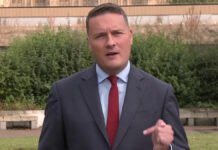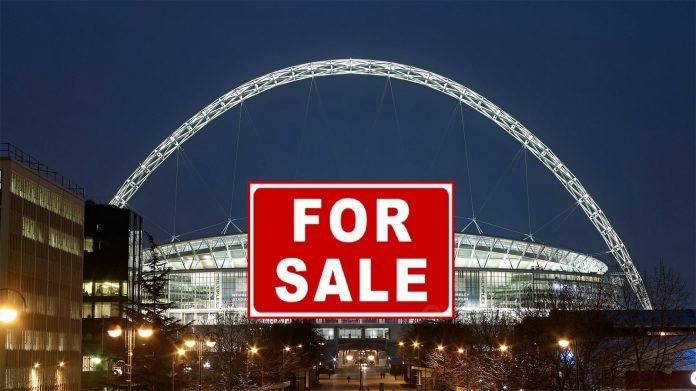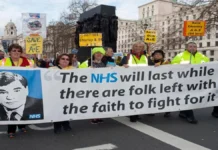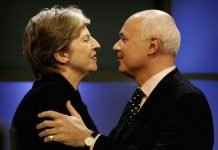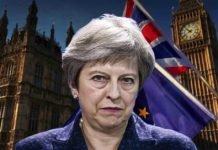The owner of Fulham Football Club and the Jacksonville Jaguars has offered the Football Association £900million to purchase England’s National Football Stadium. Fans are not happy:
“Wembley: Football Association offered £900m to sell national football stadium.”
“You mean the TAX PAYER has received an £900MM offer.
FA only ponied up £125M of the £1 billion final cost (orig. budget, c.£350MM) such was the complete mismanagement of the entire project.
If the FA walks away with £900M of OUR money, and no-one blinks an eyelid, you will have all the evidence right there that this country is among the most corrupt in the world.
A disgrace.”
“It cost them £789 million to build it over 11 years ago so they’d be making a loss on it if you take inflation into account.”
As reported by D Trelford at the time of the Wembley rebuild:
“…the chairman of the Commons Select Committee on Culture, Media and Sport “was barely able to contain his incredulity” when told of a £20 million handshake over Wembley between Chris Smith, the former minister, and Ken Bates of Chelsea and the Football Association. “A handshake!” he exclaimed in tones of mock astonishment.
I say “mock” because Kaufman knew all about the handshake. He referred to it last April in his committee’s report on staging international events. In fact, he mentioned two handshakes. The first was between Sir Nigel Mobbs, chairman of the Wembley Task Force, and David Richards, then chairman of the FA Premier League, who agreed to repay £20 million to the Government when an athletics track was removed from the design.
Trevor Brooking, chairman of Sport England, told the committee he couldn’t remember when the Smith-Bates handshake had taken place. I can tell him: it was on Dec 22, 1999, in the kitchen of Smith’s home in Islington, north London. Smith ignored official advice not to hold the meeting, but it isn’t true, as some reports have stated, that the minister was foolish enough to do so without any officials present. His PPS was there and took a note.
This shows that Bates and Smith were shaking hands on a five-year repayment schedule for the £20 million already agreed by Mobbs and Richards: £3 million per year in 2000, 2001 and 2002; £5 million in 2003 and £6 million in 2004. None of this has been paid, of course, because the costs of the project escalated to £660 million and they failed to raise the money in the City. By this time, however, £120 million from the National Lottery had already been paid, mostly to buy the land around Wembley, which will collapse in value if no stadium is built.
Because of the secrecy of this meeting, press attention has inevitably focused on the missing £20 million. I’m not so worried about that, the FA will eventually pay it back. The real Wembley scandal lies with the other £100 million.
By effectively accepting the Mobbs-Richards figure of £20 million for athletics, Smith could be said to have committed the Government to providing £100 million for football alone. Yet if the FA had originally asked the Lottery to fund a football stadium, they would have got nothing like this amount.
There is agreement between Sport England and the Government that if there is no national stadium, or if the FA decide to build it in Birmingham, then the whole £120 million would have to be repaid. But if the FA go for the slimmed-down Wembley option, the £100 million will remain part of the deal.
But why? The money was granted by the Sports Lottery Panel in a contract for a national stadium that would house football and athletics, suitable for the World Athletics Championships in 2005 and the World Cup in 2006. Why should the public pay such a huge subsidy just for a football stadium that the country’s richest sport could fund itself?
When Smith dropped athletics from the Wembley plans, mainly because the platform for the running track would cost over £40 million and would come down after the 2005 event, the original Lottery agreement was broken and, on my reading, the Government were entitled to get their money back.
Why, then, did nobody speak up? Because the country was bidding for the World Cup, with a £3 million promotion campaign launched from Downing Street (even the Prince of Wales had to perform). Nothing could be allowed to damage our chances. With a football fan (Tony Banks) moving on from sports minister to oversee the bid and an ex-international (Brooking) at the head of Sport England, the £100 million for Wembley was unlikely to be questioned.
But it should be questioned – not just by Kaufman, but by the Public Accounts Committee. This is serious money. The Lottery contract should be examined, plus any minutes or correspondence in which proposals were made to change it – and if there were changes, who authorised them and why were Parliament and the public not informed?
Des Wilson, chairman of the Sports Lottery Panel, spoke out this week on “the shambles” of Wembley and Picketts Lock. People, he said, should “not see the Lottery Fund as something they can raid, that they can blackmail with threats that if they don’t get their money the UK will lose this or that event”.
We should bid for major international events, he said, only when the Government, the cities and the sports concerned had the venues and funding (including Exchequer funding) in place – “not by applying pressure on Sport England and their Sports Lottery Panel to fund a few people’s dreams at the expense of improving the reality of lots of people’s lives”. Otherwise, he implied, we risk making fools of ourselves in front of the whole world. Too true – and regrettably, too late.
CAN it be a coincidence – in the light of Jo Moore’s notorious memo about burying bad news – that the Government’s devastating and long-delayed decision to approve a housing development on Foster’s Field at Sherborne in Dorset, ridiculing their claims to be protectors of the nation’s playing fields, was released on Sept 13, two days after the attacks in America? I only ask.”
This is a "Pay as You Feel" website Please help keep us Ad Free.
You can have access to all of our online work for free. However if you want to support what we do, you could make a small donation to help us keep writing. The choice is entirely yours.

